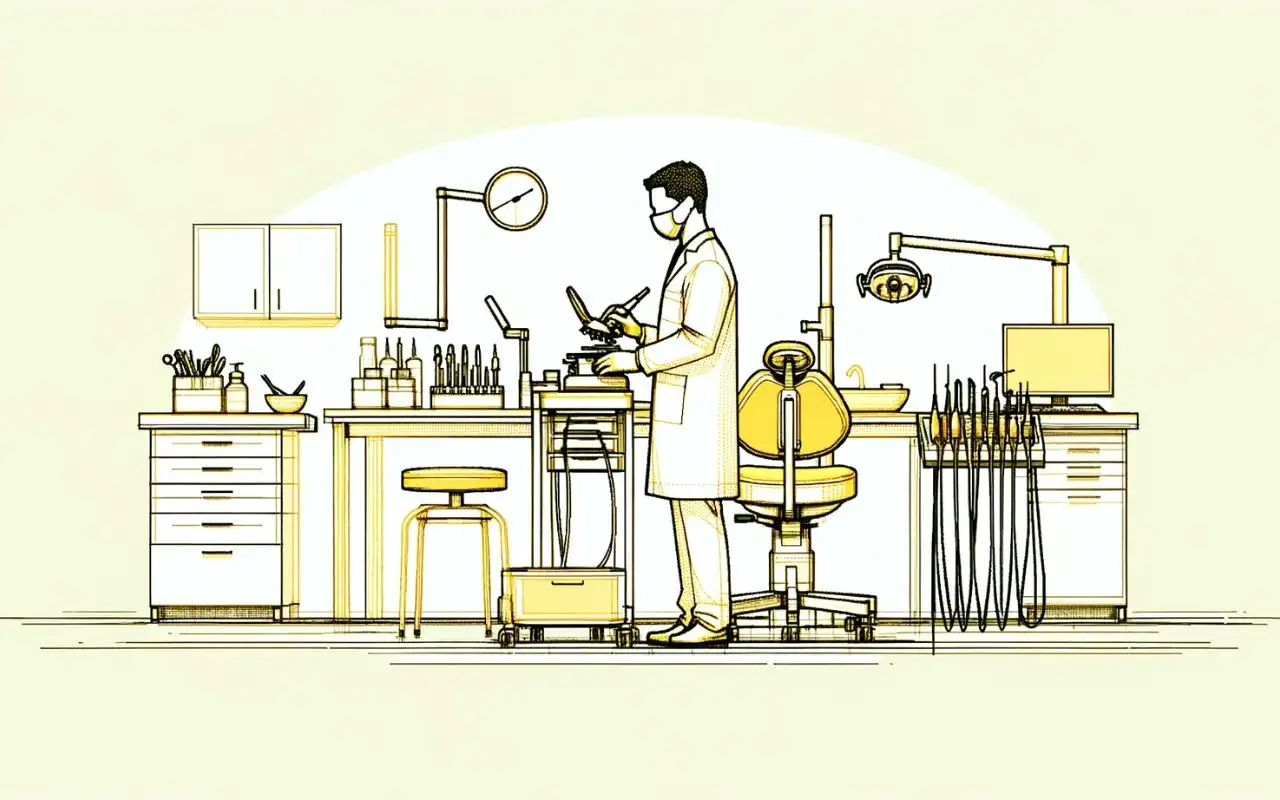A dental technician is responsible for crafting various dental prosthetics, such as crowns, bridges, dentures, and orthodontic appliances, based on impressions and specifications provided by dentists.
They work in dental laboratories, utilizing materials like ceramics, metals, and plastics to create custom-fitted dental devices.
Dental technicians must possess precision, attention to detail, and knowledge of dental anatomy and materials.
Their work plays a crucial role in restoring oral function, aesthetics, and overall dental health for patients.
They collaborate closely with dentists to ensure the accurate fabrication and fitting of dental prosthetics.
How Much Does A Dental Technician Earn in South Africa
The average monthly salary for a dental technician in South Africa is R28,700. However, salary figures can vary depending on the city.
In Johannesburg, dental technicians earn an average of R28,700 per month, while in Cape Town, the average is R27,100 per month.
In Durban, KwaZulu-Natal, the average monthly salary is lower at R19,100. These figures are based on reported salaries and are subject to change.
Factors Affecting Dental Technician Salary in South Africa
1. Location and Cost of Living
Urban areas like Johannesburg, Cape Town, and Durban offer higher salaries due to increased living costs and demand for dental services. However, rural areas with technician shortages might see higher pay to attract talent.
2. Experience and Qualifications
More experienced technicians, especially those with specialized certifications or degrees, command higher salaries due to their expertise and value.
3. Employment Setting
Salaries vary depending on the work environment. Private practices often pay more than public institutions or laboratories, while specialists like crown and bridge technicians can earn more than generalists.
4. Skills and Specialization
Technicians mastering specific skills like CAD/CAM design or implant fabrication typically earn more due to their specialized knowledge and ability to handle complex procedures.
5. Size and Reputation of Employer
Larger, well-established dental practices or laboratories tend to offer higher salaries and benefits compared to smaller or less-known ones.
6. Union Membership
Belonging to a dental technician union can provide salary negotiation support and potentially secure higher wages through collective bargaining agreements.
7. Continuing Education and Development
Technicians actively participating in workshops, conferences, or pursuing further education can demonstrate dedication and potentially increase their earning potential.
8. Performance and Productivity
Exceeding expectations, demonstrating efficiency, and taking on additional responsibilities can lead to salary increases or bonuses.
9. Negotiation Skills
Confidently negotiating salary during the hiring process or requesting raises can significantly impact your overall earnings.
10. Market Demand and Supply
In areas with high demand for qualified dental technicians and a limited talent pool, salaries might be inflated to attract and retain professionals.
Education and Qualifications of A Dental Technician in South Africa
1. National Senior Certificate (NSC) / NCV
Completing your high school education with specific subject requirements might be necessary for some institutions.
2. Diploma in Dental Technology
This two-year program offered by universities and Technical and Vocational Education and Training (TVET) colleges provides the core theoretical and practical training.
3. Practical Experience
During the diploma program, supervised clinical placements allow you to apply your knowledge and hone your skills in real-world dental settings.
4. Professional Registration
Registering with the South African Dental Technicians Council (SADTC) is mandatory to practice legally. This requires meeting their academic and experience requirements.
5. Continuing Professional Development (CPD)
Maintaining registration necessitates ongoing learning through courses, workshops, or conferences to stay updated with advancements in the field.
6. Optional Specialization
Advanced diplomas or certificates exist in specific areas like crown and bridge, dentures, or maxillofacial prosthetics, offering deeper expertise and potentially higher earning potential.
7. Soft Skills
Effective communication, teamwork, critical thinking, and problem-solving abilities are crucial for collaborating with dentists, patients, and lab technicians.
8. Interpersonal Skills
Demonstrating empathy, patience, and attention to detail fosters positive relationships with patients and ensures their satisfaction with your work.
9. Dexterity and Manual Skills
Excellent hand-eye coordination, fine motor skills, and manual dexterity are essential for working with delicate dental materials and equipment.
10. Attention to Detail
Meticulous attention to detail is vital for creating precise and accurate dental prosthetics that meet patients’ functional and aesthetic needs.

